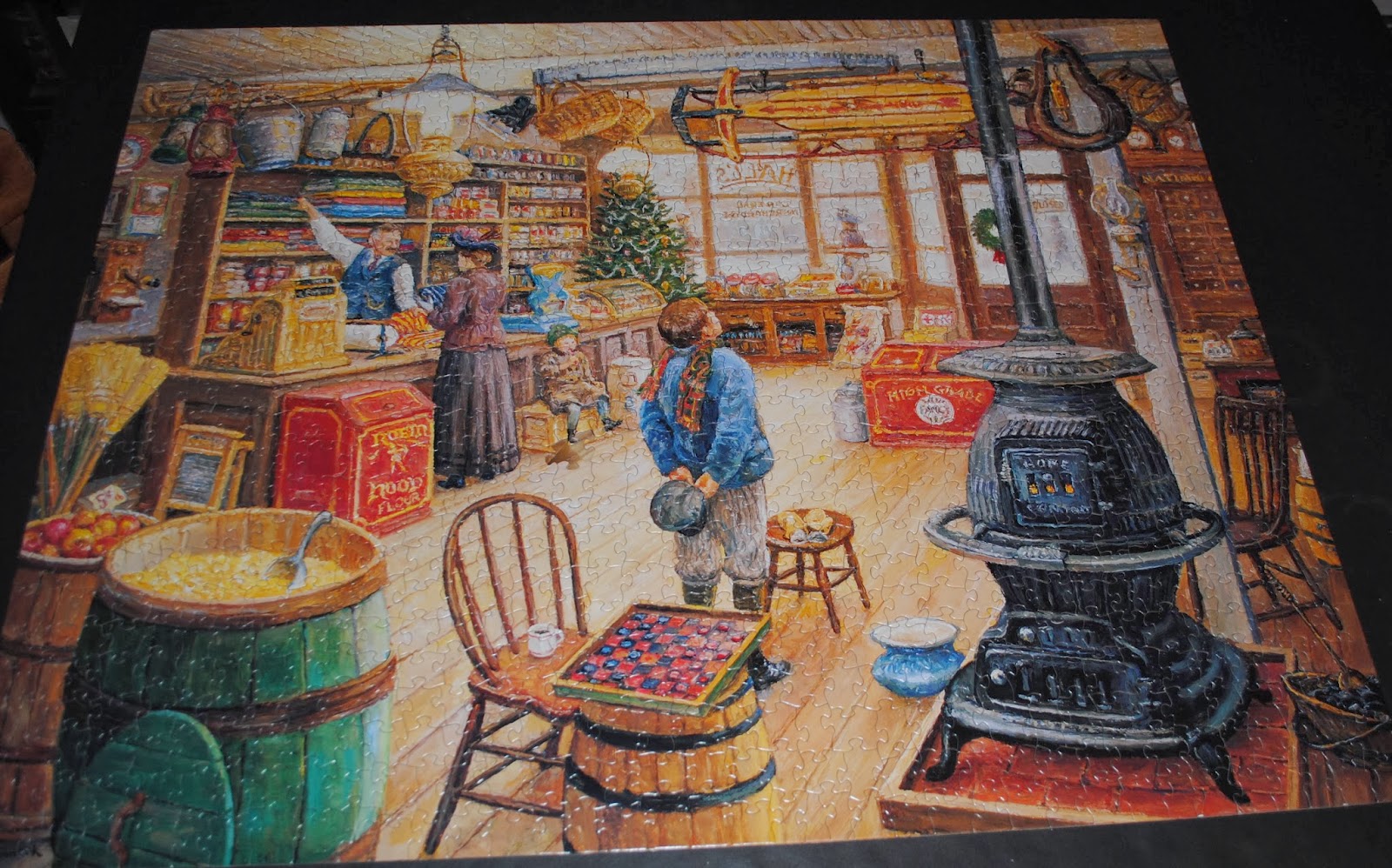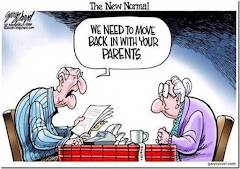
Many people who retire love to travel, play golf, play table games or go out and take advantage of early bird dinner specials at expensive restaurants. For many reasons, including the costs, we have not been big travelers. My back problems prevent me from playing golf, and we really don't care for expensive restaurants. Now my wife loves to play table games, but, unfortunately, I really don't. I'm tempted to use the words 'hate' when I discuss table games, but I tried to teach my boys not to use that word so I should set an example.
However, there are a few things that we have enjoyed doing together. We have enjoyed serving together in Awana and in our local voting precinct. Music is one of our key loves - conducting hymn sings, preparing visuals for my wife's piano offertories, listening to good music, etc. Another thing we really enjoy is doing jigsaw puzzles. There is almost always one being done out on our enclosed porch and we complete one every week or two. Maybe that is something that I inherited since my father always had one going, even when he was 90. And my sister usually has one in the process.
My wife and I enjoy the companionship of working together and our skills complement each other so well with the puzzles. She is so good at seeing different shades and matching pieces that way. She doesn't look at the picture on the box. On the other hand, I look at the picture and then find the shapes and marks on the pieces to put them together. Contrasting styles, but both important.
Now some people probably think we are crazy spending so much time doing puzzles. But there are some real benefits. There have been several studies, like the MacArthur Study, that have found that people who have been used to doing jigsaw puzzles as well as cross words and were fully active, stood to gain a longer life span and also had lesser chances of falling prey to Alzheimer's, memory loss, dementia and other old age problems. The brain produces a chemical known as dopamine that is chiefly responsible for learning and memory. The production of this chemical increases in the brain at the time when it is engaged in solving the jigsaw puzzle.
We believe that working on puzzles and solving them provides us with many helpful benefits. First of all, it helps make us alert, increases our concentration, expands our creativity. Looking at the images constantly helps us practice visualization, which is again a good aid for any physical activity that requires mental activity. Experts say that it also affects our physical health by lowering our breath rate, reducing heart rate and blood pressure too. At least some puzzles do that - others sometimes may have the opposite effect.
No matter what age you are, puzzles are very good for your brain. Putting a puzzle together calls upon many cognitive skills, providing you with a great brain work out. Here are some more things that experts say that it helps.
Visual Perception: As you work to match shape, color and design, you are giving your Occipital Lobe a workout. As you search through all of the pieces to find the correct ones you are strengthening your visual scanning abilities. It's also great for spatial reasoning. Now I have no idea what my Occipital Lobe is, but I guess giving it a workout must be a good thing. Gotta keep that Occipital Lobe in shape!
Coordination: Putting puzzles together hones hand-eye coordination and can strengthen and improve fine motor skills and dexterity in young and old hands. I guess it also helps when we must pick up some pieces that fell on the floor. And when we get down we "coordinate" our efforts by looking around to see if there is anything else that we can do before we get back up. At our age you dare not waste a trip to the floor.
Coordination: Putting puzzles together hones hand-eye coordination and can strengthen and improve fine motor skills and dexterity in young and old hands. I guess it also helps when we must pick up some pieces that fell on the floor. And when we get down we "coordinate" our efforts by looking around to see if there is anything else that we can do before we get back up. At our age you dare not waste a trip to the floor.
Critical Thinking: The steps it takes to complete a puzzle incorporate elements of sequencing, planning, logic, strategy and problem solving skills. These skills require the work of your prefrontal cortex located in the frontal lobe. Oh yes, we need to remember to exercise that prefrontal cortex in the frontal lobe!
Memory: You may not realize it but puzzles exercise your short term and visual memory. These memory components are used regularly while you put a puzzle together. Now let's see, what were we talking about? Oh yes, benefits of doing jigsaw puzzles.
Accomplishment: Many people find puzzles relaxing and they can provide you with a sense of accomplishment which releases dopamine in the brain. And any time we spend focusing on one activity helps improve our ever-waning attention spans. On the other hand, at our age, anything we can still successfully complete gives a sense of accomplishment - like getting out of bed in the morning or remembering your name or where you parked your car.
But seriously, you do get many benefits out of doing puzzles on a daily basis, including that sense of accomplishment when you are finished. That is especially true if it is a very challenging puzzle which at times has made you feel like giving up. Just persevere!
Now did I sell you on the value and benefits of this hobby? We will be glad to share any of our puzzles with you after we complete them since we always try to pass them on to others. Just ask us. If we can remember who you are or where we put them, we'll be glad to give a few to you. Wow, it looks like I better get back to doing one to try and sharpen my memory once some more. On the other hand just thinking of all the benefits has made me tired. Maybe a nap would be better. I think my Occipital Lobe and my prefrontal cortex in the frontal lobe may need some rest.
But seriously, you do get many benefits out of doing puzzles on a daily basis, including that sense of accomplishment when you are finished. That is especially true if it is a very challenging puzzle which at times has made you feel like giving up. Just persevere!
Now did I sell you on the value and benefits of this hobby? We will be glad to share any of our puzzles with you after we complete them since we always try to pass them on to others. Just ask us. If we can remember who you are or where we put them, we'll be glad to give a few to you. Wow, it looks like I better get back to doing one to try and sharpen my memory once some more. On the other hand just thinking of all the benefits has made me tired. Maybe a nap would be better. I think my Occipital Lobe and my prefrontal cortex in the frontal lobe may need some rest.












1 comment:
Great childhood memories for me here. I still love jigsaw puzzles today, at 57 years of age. You have a very nice blog. Greetings from Montreal, Canada.
Post a Comment